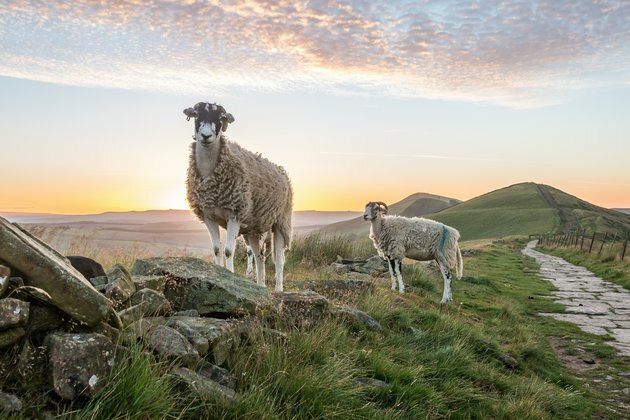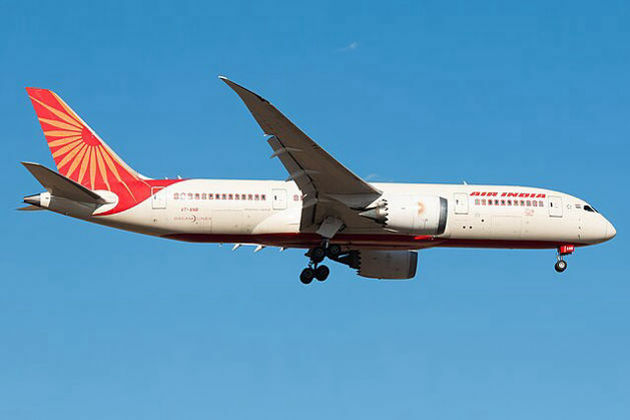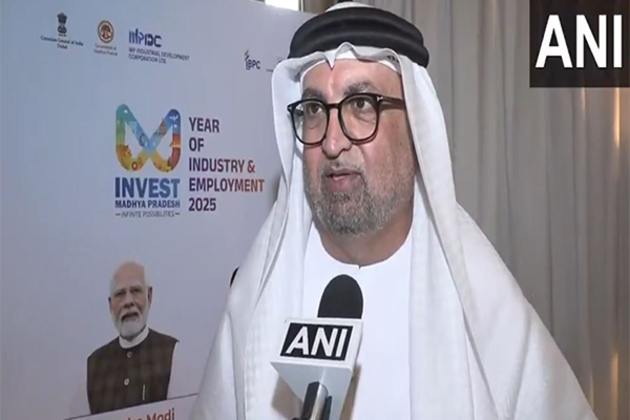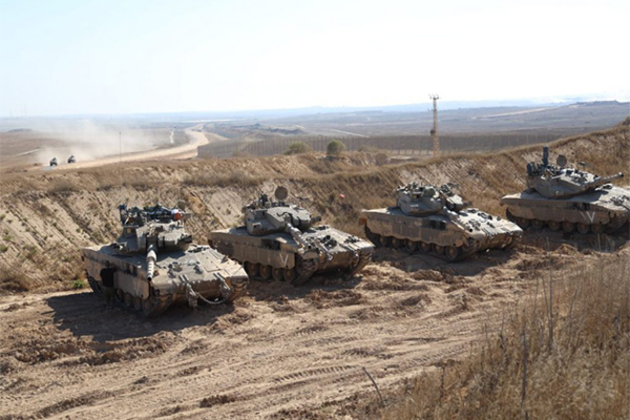Britain needs to grow more trees - are sheep farms the answer?
The Conversation
17 Sep 2020, 01:11 GMT+10

Britain's green fields and "wild" uplands may have become important parts of the national heritage, but they are landscapes wholly created by people. There's no reason to think of these areas as precious natural resources to be preserved at all costs.
If humans hadn't chopped down the trees, most of what are now Britain's sheep farms would still be part of the large forests that once covered the islands. So why can't some of these areas be turned back into woodland?
Doing so would help fight climate change, as trees absorb carbon from the air and keep it out of the atmosphere. As we found in our new research, there's even a solid economic case for sheep farmers to instead grow forests and become carbon offsetters.
Tree growing is a political hot topic in the UK, since vast areas of new forest will be needed if the country is to achieve net zero emissions.
The uplands used for sheep farming are often the focus of rewilding and forest planting projects. These landscapes are extensive and characterised by low productivity. Overgrazing is blamed for a lack of biodiversity, soil erosion and flooding.
Added to this, sheep emit the potent greenhouse gas methane through their digestive process, which makes them a target for climate-protecting measures. But if farming is to make room for trees, it must do so without crashing rural economies and food production.
Thanks to low productivity and the low prices of lamb and wool, more than 90% of the total income to UK sheep farms comes from government subsidies. By maintaining the status quo, these subsidies prevent wholesale change in land use needed for effective action on climate change. At the same time, international payments from western governments are funding forest planting at vast scales in less developed countries.
The difference in approaches at home and abroad smacks of neo-colonialism. The injustice is deepened by the recognition that climate change has largely been caused by western nations, while less developed countries bear the brunt of it. Is it fair for western governments to pay others to fix a problem of their own making, without making significant changes to land management at home?
An alternative income for sheep farmers
Public subsidies are only part of the story, however. In our new research, we explored how private financing for woodlands might be obtained through carbon offsetting, and the potential income for farmers who want to convert some (or all) of their land from sheep to trees.
We found that farming trees for carbon can provide an alternative source of income, funded by people and organisations who want to offset their emissions by buying carbon credits. For example, an individual may pay for carbon credits to compensate for their contribution to aviation emissions, or a business may buy carbon credits in order to meet corporate responsibility objectives.
On land close to mature trees that act as seed sources, with a low risk of the seeds or seedlings being eaten, forests can regenerate naturally. Our research shows that "selling" the carbon absorbed on naturally regenerating land means farms could break even or make a modest profit without subsidies. However, in other locations expensive interventions such as tree planting and deer fencing will be needed to establish woodland.
Read more: What would happen if we abandoned Britain's farms and left them to nature?
The price at which carbon can be sold will largely determine whether this is profitable. In the UK, it can currently be as cheap as Pound 3 per tonne of CO₂, which for a naturally regenerating forest translates to profits of only Pound 90 per hectare (about two football pitches) over a 25-year period. Even at the most expensive current carbon price, profits would still be just Pound 540. Clearly, this isn't enough for a farmer to live on, meaning subsidies would still be needed.
However, as the climate crisis intensifies and stricter emission policies are implemented, the climate market should grow, making forests more attractive financially. At some point in the future, markets might even pay the social price of carbon, the price society is theoretically willing to pay for the damage caused by CO₂ emissions.
This would more than triple the profit per hectare of carbon forests compared to the maximum at today's market prices. But there's currently little political will to translate the theoretical price into reality.
As the UK has left the European Union, it is no longer subject to the common agricultural policy, and subsidies are being reformed. The UK government is introducing a system that pays "public money for public goods".
But how will public goods be defined, and how should they be prioritised? In making these decisions, policymakers will face tradeoffs between maintaining traditional food production and fostering a landscape that supports a more sustainable future, at both national and global levels.
We urgently need to figure out how to plant trees in the UK on the vast scales needed to make a dent in atmospheric CO₂, without damaging food production or wrecking rural livelihoods and economies. One way forward may be to consider private financing via carbon markets, alongside subsidies that reward farmers for capturing carbon as well as producing food.
Finance is being leveraged at enormous scales to reforest landscapes in less developed countries. It's about time western countries dropped the double standards and took the same approach at home.
Read more: Rewilding: rare birds return when livestock grazing has stopped
Authors: Connie O'Neill - Researcher, Stockholm Environment Institute, University of York | Colin Osborne - Professor of Plant Biology, University of Sheffield 
 Share
Share
 Tweet
Tweet
 Share
Share
 Flip
Flip
 Email
Email
Watch latest videos
Subscribe and Follow
Get a daily dose of Iraq Sun news through our daily email, its complimentary and keeps you fully up to date with world and business news as well.
News RELEASES
Publish news of your business, community or sports group, personnel appointments, major event and more by submitting a news release to Iraq Sun.
More InformationInternational
SectionAir India crash: Engines shut down seconds after takeoff, killing 260
NEW DELHI, India: A preliminary investigation into the Air India crash on June 12 in Ahmedabad has revealed that a shift in the fuel...
Sources: Meta won’t alter data model, faces fresh EU charges
BRUSSELS, Belgium: Meta is holding firm on its controversial pay-or-consent model, a move that could lead to fresh antitrust charges...
Trump’s tariff push could push US rates above 20%, ICC says
LONDON, U.K.: American consumers and businesses could soon face the highest overall tariff burden in more than a century, according...
U.S. Urged to Investigate After Israeli Settlers Beat Palestinian-American to Death
The family of Sayfollah Saif Musallet, a 20-year-old American citizen who was beaten to death by Israeli settlers in the occupied West...
New Hampshire federal court ruling defies Trump’s citizenship move
CONCORD, New Hampshire: A federal judge in New Hampshire issued a crucial ruling on July 10 against President Donald Trump's executive...
Houthis attack cargo ship in Red Sea, raising maritime safety fears
DUBAI, U.A.E.: A cargo ship flagged under Liberia, known as the Eternity C, sank in the Red Sea following an attack executed by Yemen's...
Arab
SectionHouthis attack cargo ship in Red Sea, raising maritime safety fears
DUBAI, U.A.E.: A cargo ship flagged under Liberia, known as the Eternity C, sank in the Red Sea following an attack executed by Yemen's...
Gaza War sucking life out of an Israeli generation
In the past month alone, 23 Israeli soldiers have been killed in Gaza—three more than the number of remaining living hostages held...
Daily World Briefing, July 15
China launches Tianzhou-9 cargo craft to send space station supplies China launched the cargo spacecraft Tianzhou-9 in the early...
"Discussed various sectors of interest in both MP and UAE": FCCI Secy Gen on meeting with CM Mohan Yadav
Dubai [UAE], July 15 (ANI): Secretary General of the Federation of UAE Chambers of Commerce and Industry, Humaid Mohamed Ben Salem,...
Israel kills seven senior Hamas terrorists released in 2011 prisoner deal
Tel Aviv [Israel], July 15 (ANI/TPS): Seven senior Hamas terrorists who were released in the 2011 Gilad Shalit prisoner exchange and...
Defence Minister Katz calls attack on Syrian tanks 'clear warning' to regime
Tel Aviv [Israel], July 15 (ANI/TPS): Speaking about the Israeli military's attack on tanks on the move in southern Syria on Monday,...












